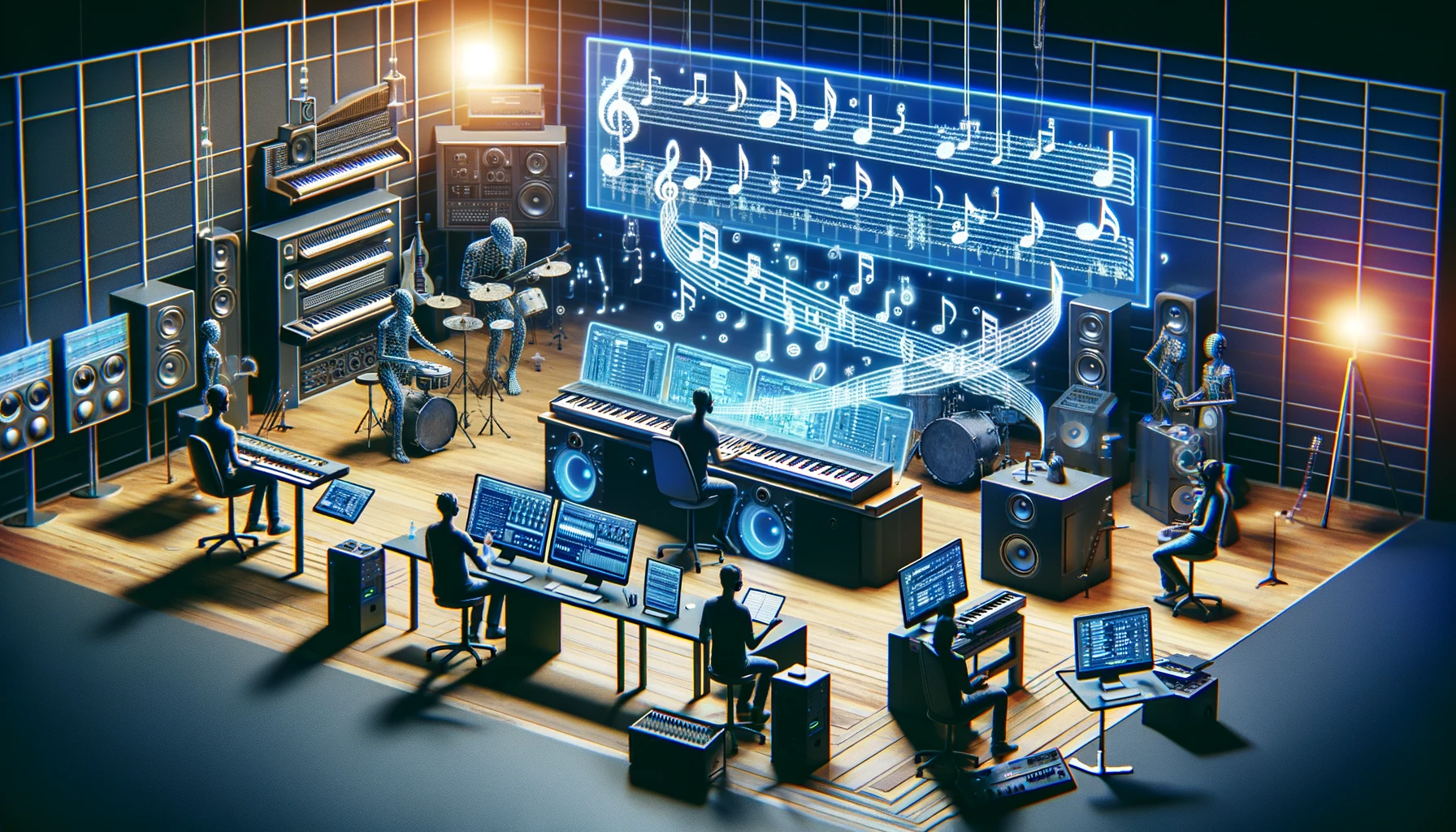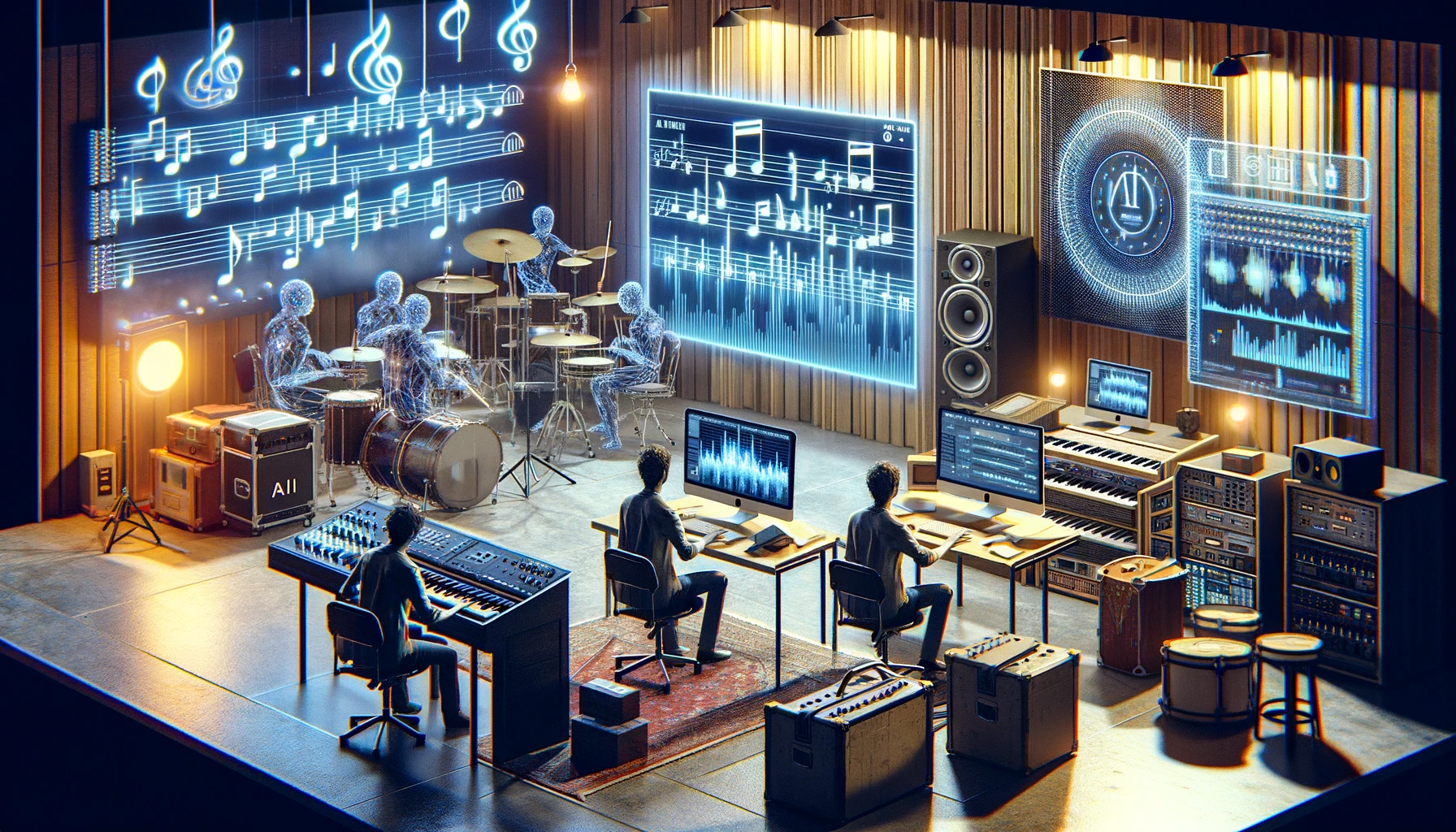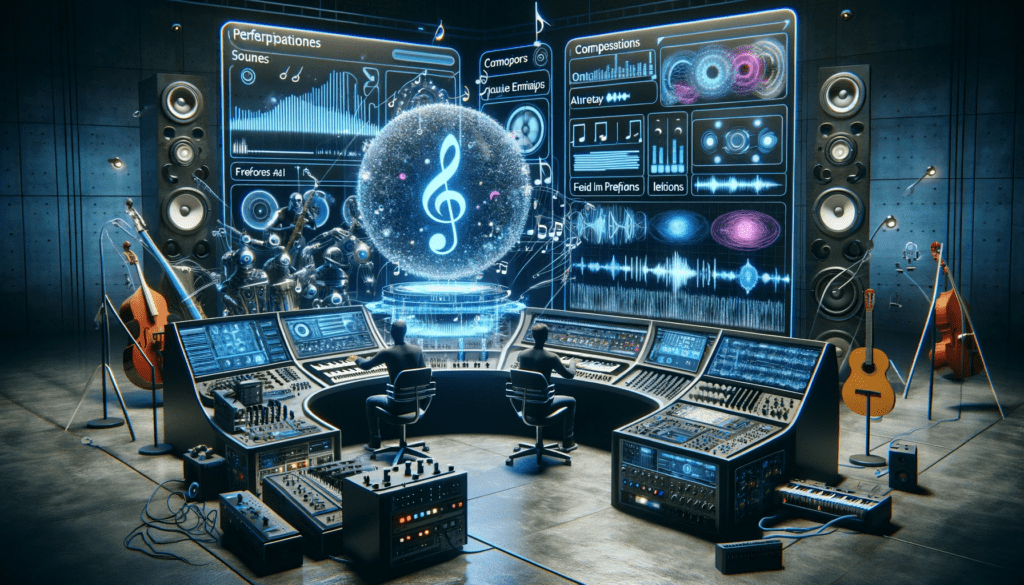The world of music is undergoing a transformation, and at the heart of this revolution is Artificial Intelligence (AI). In an era where technology is reshaping industries and pushing the boundaries of creativity, AI-powered personalized music composition emerges as a topic of both fascination and debate. It begs the question: Can AI truly redefine the way music is composed, personalized, and consumed?
In this article, we delve into the intriguing realm of AI-powered music composition, exploring its potential to disrupt traditional paradigms and shape the future of music creation. As we navigate through the following sections, we will uncover the evolution of music composition, the current landscape of AI in music, the concept of personalized music composition, its advantages, and the ethical and creative challenges it poses. By the end of our journey, we will have a clearer understanding of whether AI is poised to become the maestro of the future or simply another tool in the musician’s repertoire.
The Evolution of Music Composition
To understand the potential of AI in music composition, it’s essential to grasp the evolution of this art form. Music composition has historically been a deeply human endeavor, driven by creativity, emotion, and cultural influences. Composers, whether classical maestros like Mozart or contemporary icons like Lennon and McCartney, have relied on their innate talent and years of training to craft melodic masterpieces.
This section delves into the traditional process of music composition, where human ingenuity reigns supreme. We explore the challenges faced by composers, including the infamous creative block that can stifle even the most gifted minds. Time constraints, the quest for originality, and the emotional labor invested in each piece are integral aspects of this creative process.
However, technology has played an increasingly significant role in assisting musicians over the years. From the introduction of the piano roll in the 19th century to the advent of digital audio workstations (DAWs) in the modern era, musicians have harnessed technology to streamline composition, recording, and production processes.

AI in Music Composition: The Current Landscape
As technology continues to advance, we find ourselves in an era where Artificial Intelligence is pushing the boundaries of creative expression. AI is not just automating tasks but also generating artistic content, including music. In this section, we provide an overview of the current landscape of AI applications in music composition.
Generative models, neural networks, and machine learning algorithms are at the forefront of this AI revolution in music. We explore how these technologies are being employed to analyze vast datasets of musical compositions, identify patterns, and generate entirely new pieces of music. From classical compositions indistinguishable from those of renowned composers to innovative and experimental soundscapes, AI has showcased its creative potential.
Moreover, we delve into notable AI-powered music projects and compositions that have garnered attention and accolades in recent years. These projects serve as a testament to the capability of AI to not only assist but also innovate in the realm of music composition.
Personalized Music Composition with AI
One of the most intriguing aspects of AI in music is its potential to offer personalized compositions tailored to individual preferences and emotions. Imagine a world where you can input your mood, memories, or even your heartbeat, and AI creates a musical composition that resonates with your unique state of mind. This section explores the concept of personalized music composition with AI.
We delve into AI-driven platforms and tools that allow users to engage with music on a deeply personal level. These platforms may prompt users to input their emotions, memories, or musical preferences, and in return, they receive compositions that are uniquely suited to their emotional or situational context. Whether it’s relaxation, motivation, or a soundtrack for a specific moment, personalized music composition powered by AI seeks to provide an unparalleled listening experience.
The implications of personalized music extend beyond entertainment. We discuss how personalized compositions are finding applications in various industries, from advertising and marketing, where music can be tailored to enhance brand experiences, to therapy and wellness, where music can be prescribed as a therapeutic tool to manage emotions and stress.
Advantages and Challenges
AI-powered personalized music composition holds immense promise, but it is not without its share of advantages and challenges. In this section, we provide an in-depth examination of both aspects.
The advantages of AI in music composition are multifaceted. We discuss how AI offers efficiency by generating compositions at a rapid pace, eliminating creative blocks, and providing a wealth of musical options. Accessibility is another key advantage, as personalized music can be made available to anyone, regardless of musical expertise. Moreover, AI’s capacity for limitless creativity opens doors to musical genres and styles that may have remained unexplored.
However, with great potential comes great responsibility. We address the ethical considerations associated with AI-generated music, including issues of copyright, plagiarism, and authenticity. We also explore concerns related to the potential loss of the human touch in compositions and the question of whether AI can truly capture the depth of human emotions through music.
The Future of Music Creation
As AI continues to evolve, it is essential to look ahead and anticipate the future of music creation in an AI-driven world. In this section, we predict the trends and developments that may shape the future of music composition.
We discuss how AI algorithms are likely to become increasingly sophisticated, capable of generating compositions that not only align with individual preferences but also push creative boundaries. User interfaces for AI-powered music composition platforms are expected to become more intuitive, enabling a broader audience to engage with and create personalized music.
Furthermore, we explore the implications of AI in music creation for artists and composers. Will AI become a collaborator, assisting human musicians in their creative endeavors, or will it challenge traditional notions of authorship and artistic expression?

Conclusion
In conclusion, the world of music is on the cusp of a profound transformation, driven by the capabilities of AI-powered personalized music composition. We have journeyed through the evolution of music composition, explored the current AI landscape in music, delved into the concept of personalized music, and examined both the advantages and challenges that AI brings to this creative domain.
As we reflect on the future of music creation, it becomes clear that AI is not merely a tool but a potential collaborator in the artistic process. While it has the power to automate and innovate, it must navigate ethical considerations and the ever-important human element in music.
As we move forward, the role of AI in music composition will continue to evolve, offering new possibilities and posing new questions. Whether AI becomes the maestro of the future or remains a complementary tool in the hands of musicians, it undeniably contributes to the ever-expanding tapestry of human creativity, promising a future where music is both deeply personal and boundless in its exploration of emotions and expression.
